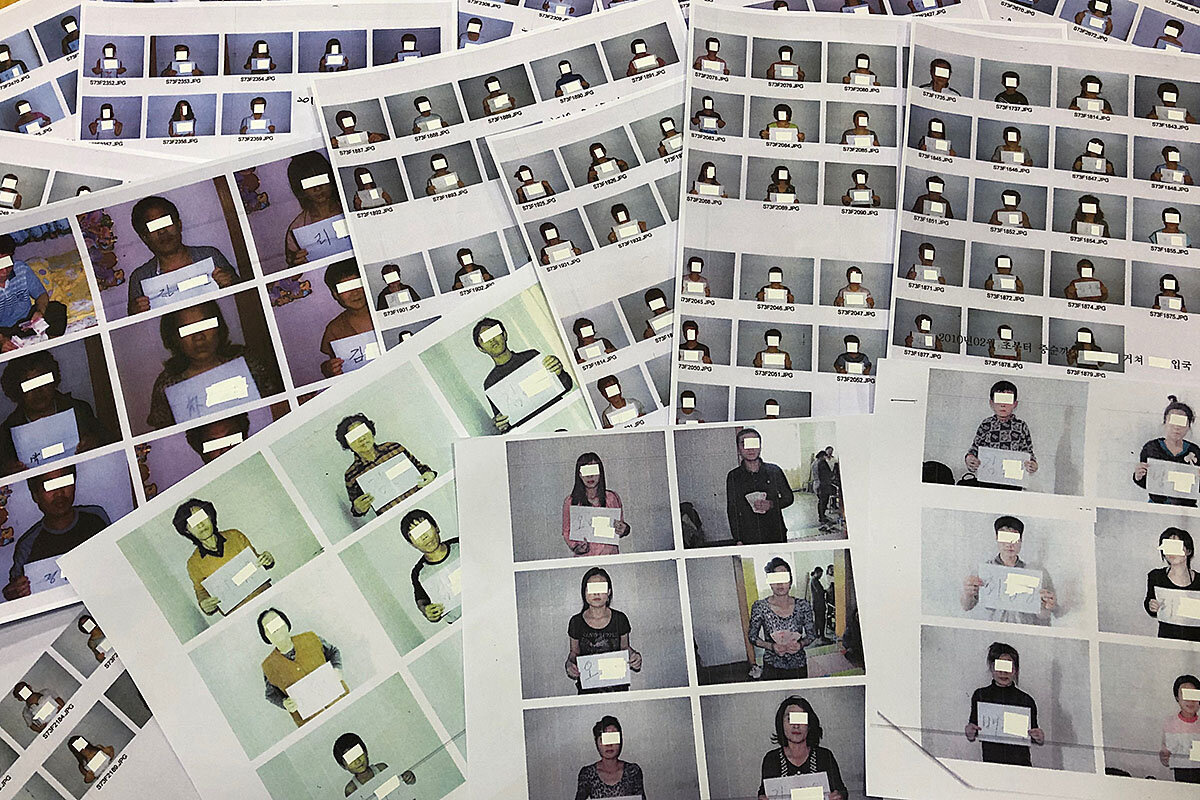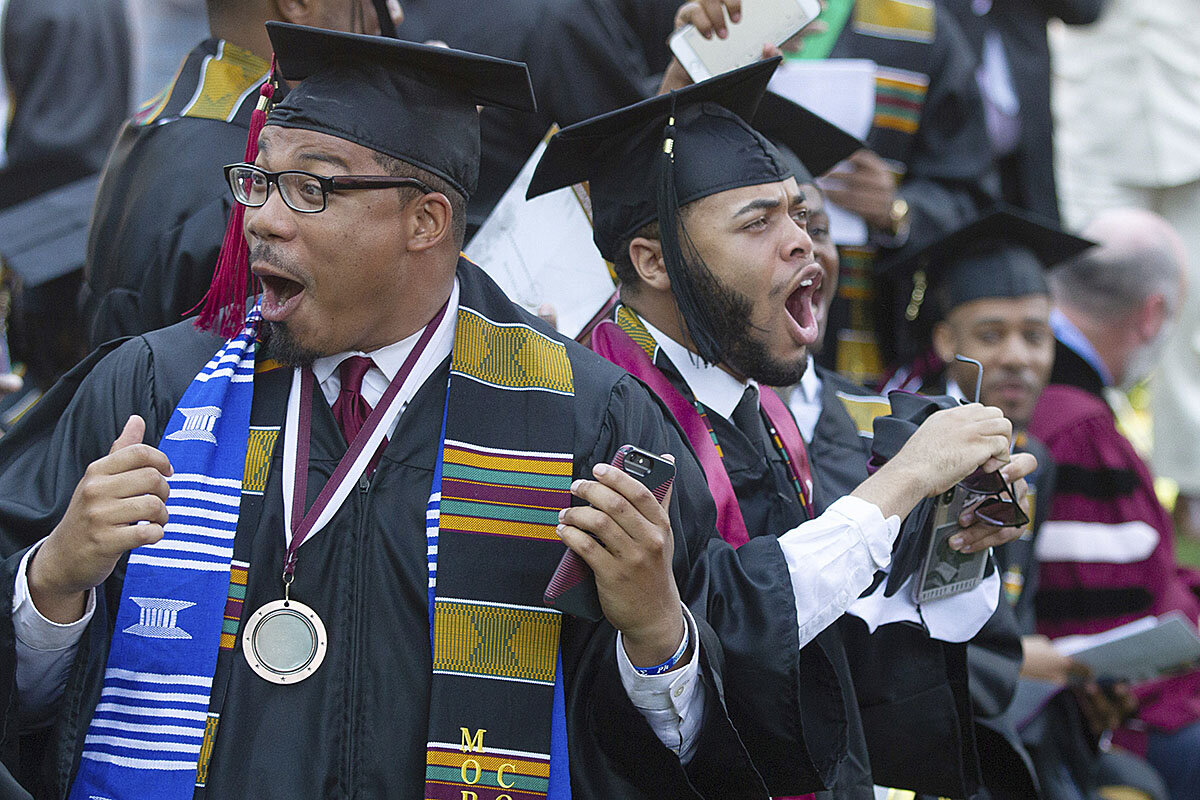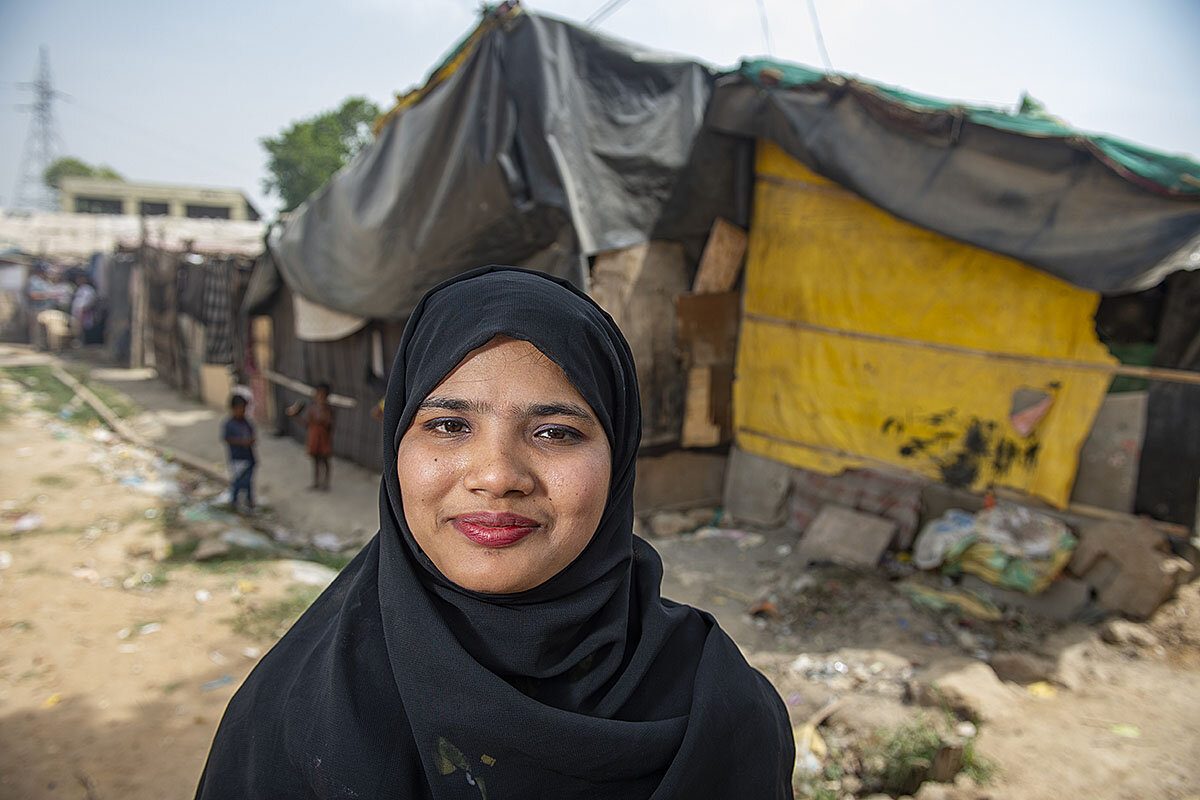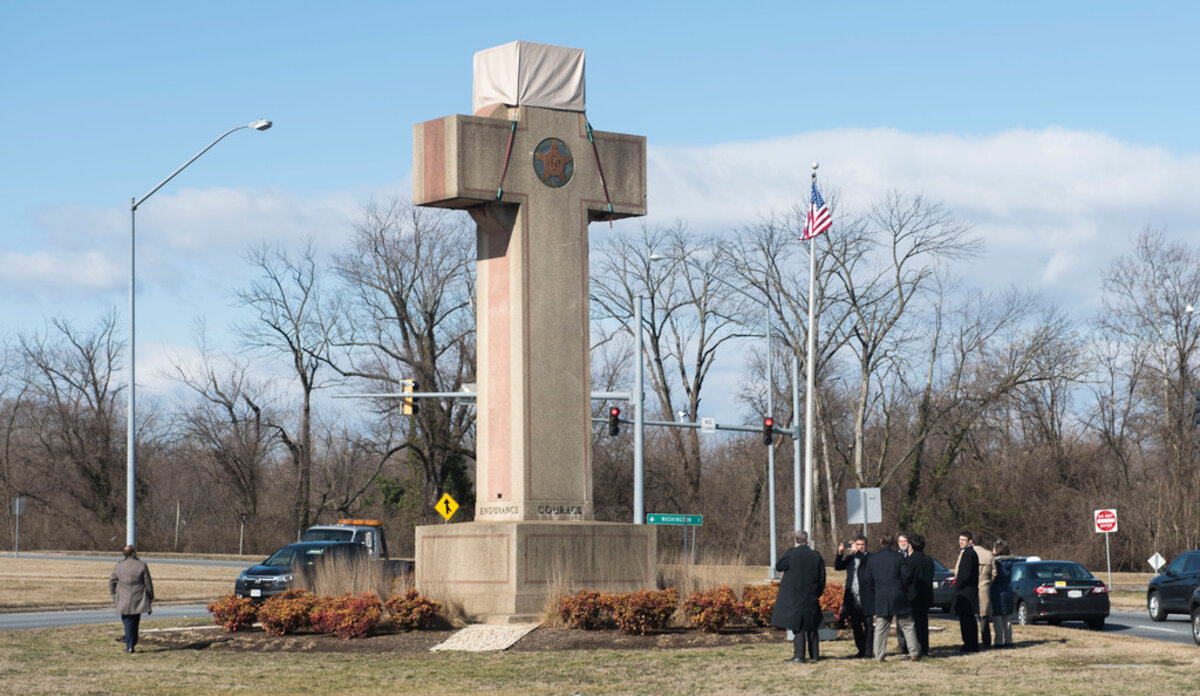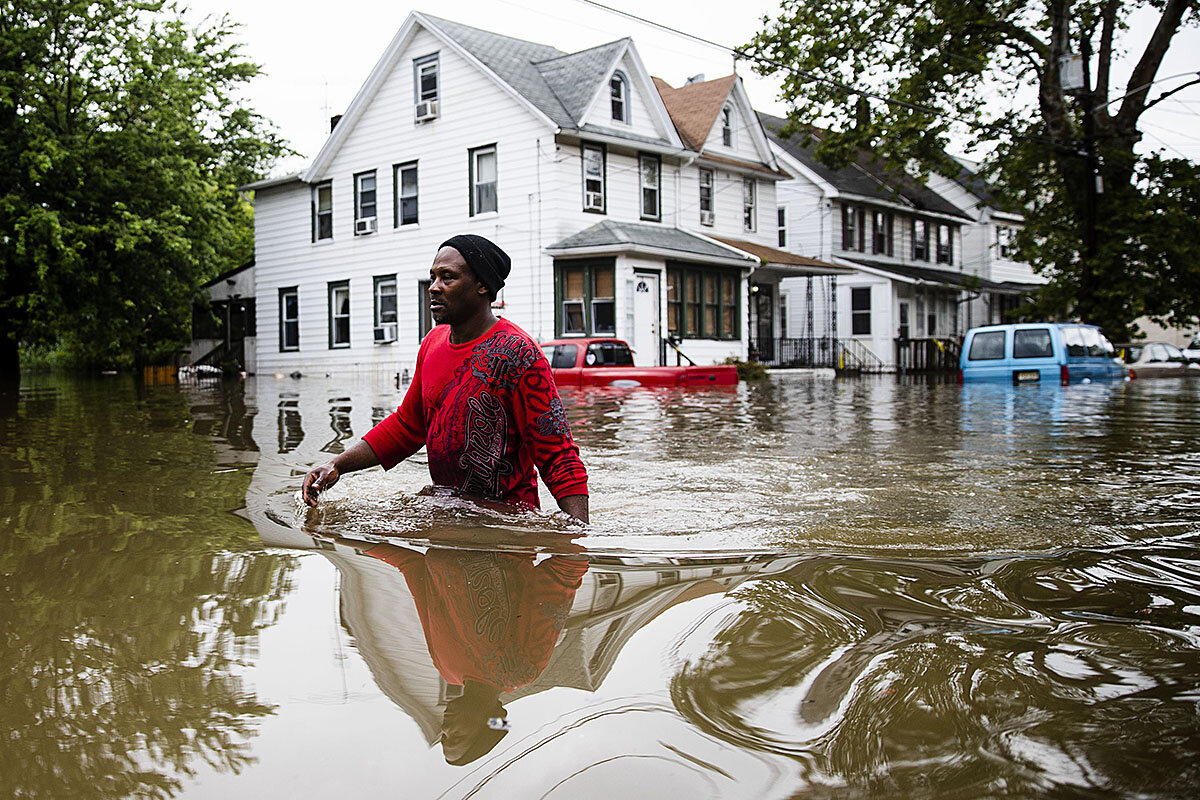The Bladensburg Peace Cross is a tall religious symbol erected on public land to honor World War I casualties. Thursday’s Supreme Court decision allowing it to remain was in many ways an examination of whether a long-standing monument can reflect the values of neutrality and inclusion demanded by the First Amendment.
Monitor Daily Podcast
- Follow us:
- Apple Podcasts
- Spotify
- RSS Feed
- Download
 Peter Grier
Peter Grier
Every minute, 20 people leave everything behind.
They flee their houses and perhaps their country. They take loved ones or leave them. They carry few possessions. They are asylum-seekers, the internally displaced, the stateless. Refugees.
Today, June 20, is World Refugee Day, as established by the United Nations. It’s meant to focus attention on one of the greatest humanitarian needs on the planet.
Being a refugee means having to find a new sense of home in strange places. At the Monitor we have long considered telling that story to be a core aspect of our mission.
Over the last year our series “On the Move” has drawn vivid portraits of what it means to adapt to the circumstances of flight.
In Toronto, a Syrian refugee named Wasim Meslmani lives in a basement and runs a Facebook page devoted to helping other refugees adapt to Canada. Winter boots – they’ll need them.
In Tanzania, Daudi Nzila planted two mango saplings at his new house when he arrived as a refugee from Burundi. Thirty-six years on, the trees now cover the home like a canopy, blotting the sun.
And in Jordan a flood of Syrian refugees is straining the nation. But at Al Hussein Secondary School, Jordanian and Syrian students bond over sports, studies, and music.
“Teachers and students here treat us as if we are part of Jordan,” says Haya al Qarah, a teenage Syrian girl.
On World Refugee Day may we all try to demonstrate such generosity of spirit.
Now on to our five stories for today, which include a look at whether facial recognition technology could make privacy a thing of the past. And, yes, we have a refugee piece, about the talent and spirit Rohingya refugees have brought to new homes in India.





